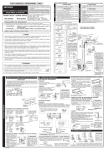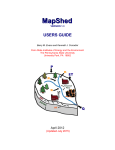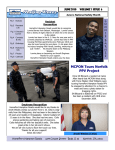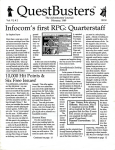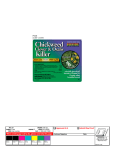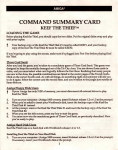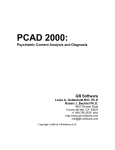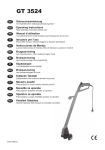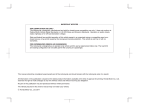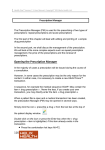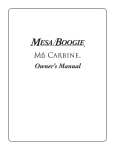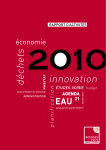Download swordtwilight-manual - Museum of Computer Adventure Game History
Transcript
Swords of Twilight
Swords of Twilight offers you an extraordinary opportunity: freedom of action in a
world of wonder-and sense. Eat, sleep, explore, learn. Meet interesting people. Talk.
Fight.Just like real life- with magic. If you like, bring a friend or two, and Iive the life
of a knight or magician on a quest to recover the Swords of Shambala. Gossip with
dragons, cast a spell with word and gesture, swing your sword at an armored foe, or
stalk the musty corridors of ruined tombs where skeletons stir at night. Short of firstdegree burns, this is as close as you can get to a dragon's breath or a wizard's fireball.
Swords of Twilight is fairly intuitive and largely self-prompting. Learning it can be
done in five ways.
•
Read the manual. (Weknowifsagainstyourprinciples, but give it a try.) If you're
in a hurry, at least read The Disks and Quick Start to Swords of Tw11ight.
•
Trial and error is a reasonable way to familiarize yourself with movement and the
menus. Nothing dire will happen. (Honestly.)
•
Observe the conduct of your computer-controlled comrades; although they lack
an overall sense of purpose or direction (thaf sup to you), they do know how to
conduct themselves in an encounter with friend or foe. If you do not speak up, they
will.
•
Ask anyone you meet everything the menus allow, and pay attention to the
answers, which may depend on the type, experience, and location of the speaker.
Even commonplace sayings are true and relevant.
•
Use your imagination. Put yourself in an ancient world where magic works-or
used to. What would you do? How would you act? Would someone object to theft
or murder? Could you go a week without food? Or sleep? When in doubt, act
naturally. The worlds you experience, however fantastic, reflect our own.
Cautions
Table of Contents
Cautions ................................................................................. 1
The Disks ................................................................................ l
Loading Instructions ............................................................. 2
Game Commands .................................................................. 4
Quick Start to Swords of Twilight ........................................ 6
The Screen .............................................................................. 8
Getting Started ...................................................................... 9
Controlling Your Character ............................................... 10
Menus and Other Options .................................................. 12
Monitoring Your Character ................................................ 17
Travel ................................................................................... 19
Donjons ................................ .-............................................... 20
Magic .................................................................................... 22
Cast of Characters ............................................................... 28
Computer Controlled Characters ....................................... 31
This manual is written for Amiga computers. If you're using anything other than an Amiga, consult the Command Summary
Card included in the package.
To play Swords of Twilight, your Amiga must have at least one floppy
drive and 512K of RAM. If you're going to play from a hard disk, you'll need
more than 512K of memory. Your machine must be operating with Kickstart
1.2 or higher. The game supports up to two joysticks.
Don't throw away the box -you'll need those crests on the inside front cover.
The Disks
Inside the package you'll find a Program Disk and a Data Disk. The disks are
not copy protected. Unless you install the game on a hard disk, you'll also
need a blank floppy disk. Before you begin play, YOU MUST MAKE A COPY OF
THE DATA DISK. It'll automatically be named "Copy of Swords Data Disk."
Leave it that way.
When playing, use only your copy, not the original. The copy will be updated
every time you "save the game" (see Saving the Game, page 5); if you ever want
to start a new game, make another copy of the original Data Disk. If you don't
know how to make a copy, read the instructions below that pertain to your
particular system.
Because Swords of Twilight uses a custom font, you must boot (or reboot) with
the Swords of Twilight Program Disk. That is, when the computer asks for a
Workbench disk, insert the Program Disk. Double-dick on the disk icon; when
the window opens up, double-click on the sword icon to begin the game. You
can install the game on a hard disk by following the instructions below.
In these instructions "left-click" means click (quickly press and release) the left
mouse button. "Double-dick" means click a mouse button twice in a row.
Loading Instructions
Floppy Disk Users
Inside the package you'll find a Program Disk and a Data Disk.
Before you begin play, YOU MUST MAKE A COPY OF THE DATA
DISK. You'll need a blank floppy disk.
Single Drive System
Follow these instructions if you have a single drive system.
To make a copy of the Data Disk:
1. Turn on your computer. (Amiga 1000 owners, insert Kickstart 1.2 or 1.3.)
2. When you're asked to insert Workbench, insert the Program Disk. Wait for
the Program Disk icon to appear (you'll see the name "Swords of Twilight"
beneath it).
3. Remove the Program Disk and insert the Data Disk. Wait for the Data
Disk icon to appear (you'll see the name "Swords Data Disk" beneath it).
4. Left-click the Swords Data Disk icon to highlight it.
5. Move the cursor to the top of the screen. Press down and hold the right
mouse button, then drag down the Workbench menu. Highlight Duplicate and release the mouse button.
6. At the prompt, remove the Data Disk and insert the Program Disk.
7. At the next prom pt, remove the Program Disk and put the Data Disk
back in.
8. When you're asked to put iri the DESTINATION disk (TO disk), insert the
blank disk. You'll have to swap disks from time to time. The new disk will
be called "copy of Swords Data Disk." This is the Data Disk from which
you'll play. Do not rename it! It must be called "copy of Swords Data Disk."
To start playing:
1. Insert the Program Disk. Double-click the Program Disk icon.
2. When the window appears, double-dick the Swords of Twilight icon. If you
need a joystick in Port 1, plug it in now.
3. At the prompt, insert the copy of Swords Data Disk.
To make a copy of the Data Disk:
1. Turn on your computer. (Amiga 1000 owners, insertKickstart
1.2 or 1.3 at the prompt.)
2. When you're asked to insert Workbench, insert the Program Disk
in DFO:. Wait for the Program Disk icon to appear (you'll see the name
"Swords of Twilight" beneath it).
3. Remove the Program Disk from DFO: and insert the Data Disk in DFO:.
Wait for the Data Disk icon to appear (you'll see the name "Swords Data
Disk" beneath it).
4. Insert the blank disk in DFl:. Wait for the blank disk icon to appear.
5. Place the mouse cursor on the Swords Data Disk icon, hold down the left
mouse button, and drag the Data Disk icon onto the blank disk icon.
Release the mouse button.
6. A message box will appear telling you to insert the Program Disk. Remove
the Data Disk and insert the Program Disk in DFO:. Follow the onscreen
instructions. The new disk will be called "copy of Swords Data Disk." This
is the Data Disk from which you'll play. Do not rename it! It must be
called "copy of Swords Data Disk."
To start playing:
1. Insert the Program Disk in DFO: and the copy of Swords Data Disk in DFl :.
2. Double-click the Program Disk icon.
3. When the window appears, double-click the Swords of Twilight icon. If you
need a joystick in Port 1, plug it in now.
Hard Disk Users
Follow the steps below to install Swords of Twilight on your hard disk. Wherever you see "hard" in the following instructions, substitute.the name ofyour
hard disk. (For example, let's say your hard drive is named "Ralph." In the
command, "Type COPY DFO: TO HARD:," you'd actually type "COPY DFO:
TO RALPH:.")
1.
2.
Two Drive System
Follow these instructions if you have a two drive system.
CTJ
3.
Boot your system as you normally would.
From the Workbench, left-click the "Empty" drawer and select Duplicate
from the Workbench menu.
Left-click the "copy of Empty" drawer and select Rename from the
Workbench menu. Press rightAmiga-X to erase "copy of Empty." Then
type SWORDS and press Return.
4. Insert the Data Disk in DFO:. Double-dick the "CU" or "Shell"
icon in the Workbench window to open a Command Llne
window (CLn. Type:
•
•
•
Take items (pick up or drop items, ready or unready
equipment, eat food or drink a potion)
Talk to people (Ask for information and aid, Offer answers,
give and receive gifts)
Move (exit the menu and move or fight)
COPY DFO: TO HARD:SWORDS ALL
5.
When your machine finishes copying, remove the Data Disk and insert
the Program Disk in DFO:. You're now going to copy the game's font into
your font directory. From the CU, type:
See Menus and Other Options for more details. To fight, select Shift and change
your attitude to Hostile (if you aren't already). Next, select Move to exit the
menu. When your character is next to a foe, press the trigger key, and, without
releasing it, use the cursor ( +- ~ t J.) keys or push the joystick in the direction
you wish to strike.
COPY DFO:FONTS ALL FONTS:
6.
When your machine finishes copying, close the CU. Double-dick the
Program Disk icon. Place the mouse cursor on the Swords icon. Press down
and hold the left mouse button, then drag the Swords icon onto the
"Swords" drawer. Release the mouse button.
To start playing:
1. Open the CU and type:
ASSIGN "COPY OF SWORDS DATA DISK:" HARD:SWORDS
2.
3.
You must do this each time you reboot your computer when you want to
play Swords ofTwilight.
Close the CU and double-dick the Swords drawer.
Double-dick the Swords of Twilight icon. If you need a joystick in Port l,
plug it in now.
Game Commands
Character Actions
Use the cursor(+-~ t J.) keys or the joystick to move your character. All other
actions require the "trigger key" - the right Alt or Amiga key or the joystick
button. Press and release the trigger key to get into the menu of further options
that allow you to:
•
Shift your attitude or manner
Pausing the Game
Press Esc to pause the game any time you're not on the Rainbow Road. To
resume play, press the spacebar. You can also pause the game by holding
down the left Alt or Amiga key. Use this if you wish to write down a message
on the screen. The game resumes as soon as you release the key.
Quitting the Game
To quit, remove the disk(s) from the drive(s), tum off your computer, or reboot
with a different disk.
Regrouping
During the game, you can shift control of a character from the computer to a
human player or vice versa. If a friend arrives or leaves, you can "Regroup."
Hold down the left Alt or Amiga key, and press R. Next, use the left/right
cursor keys ( +- ~ ) and the right Alt or Amiga key to specify how each character in your party will be controlled.
Note: You can't regroup during an encounter or on the Rainbow Road.
Saving the Game
The standard way of ending a game session is to return home, see the Queen,
and Part. At that point you have two options: Save or Regroup. To save the
game and preserve your progress to that point, choose Save. If you just want to
try new characters, choose Regroup. (Note that this does not have the same
.
CTJ
effect as left Alt-R.) If you save the game, you can then continue
playing with the same characters, choose new ones, or quit
playing.
is no direct way to tell the rank of those you meet. Someone
with several followers will tend to be higher-ranking than a
lone individual; a more experienced person knows more and
is harder to impress.
If you're about to enter a particularly forbidding donjon or you don't have
time to make it back to Gloriana's castle, press FlO to save the game. You
·must be outdoors but not in an encounter. You can then continue playing or
quit. When you quit and later restart the game, you'll be exactly where you
left off. With this option, you cannot change the characters in or the location
of your group.
Quick Start to Swords of Twilight
..,.. Form a Party
From a cast of 31, pick three characters to begin your quest. Using the
keyboard and one or two joysticks as input devices, up to three people can
play simultaneously, each controlling one character. The computer will
direct any of your comrades not controlled by a human. (You can't use a
mouse, but you can leave it connected if the computer is running the corresponding character.)
Your initial choice of characters is not crucial. All of them are reasonably
equipped, and a mixture of ranks works best. For starters, avoid the slow
(e.g., Tessalon) and the stubborn (Bercilak or Ursin). In fact, let the mages
stay home for now, and begin with Imrie, Ariana, and Lochinvar, perhaps, or Valor, Bronwen, and Gardol. (See Cast of Characters for more information.)
..,..
A Dynamic World
Swords of Twilight is dynamic. Things change. Reputation spreads.
Circumstances vary. Castles fall to ruin; ruins can be rebuilt. Treasure
taken away is gone; a valuable object left behind may be moved and put
away.
Encounters
Every individual is unique. All ogres are ogrish, but some are stronger or
stupider than others. Even commoners differ in skill and experience. There
Encounters are fluid. Everyone's behavior affects everyone else's. Friendly
folk naturally move physically closer to one another; people whisper
secrets they won't shout across the room. If you get too close for comfort,
however, people will withdraw or get angry. Pressuring them can workbut not for long.
Reputation
People remember how you treat them, and gossip spreads quickly. If you
roam through a town slaying everyone you meet, you'll ensure a hostile
reception there, and you'll be unwelcome elsewhere in the land. Try to
part on a positive note with those you met Friendly or Polite. Leaving
people Hostile or dead will cause you trouble later and, to some degree,
will even harm the reputation of the Queen's other envoys.
There are exceptions. Slaying ghouls, ogres, or a Shadowlord's minions
may earn you a hostile greeting in a Shadowlord's citadel but will enhance your reputation elsewhere. However, nobody cares what you do in
a ruin - except the people who live there. Likewise, the reputation you
earn in one world has little effect on your reputation in another.
Night and Shadow
The gloom of night is real. Those who prowl the darkness are often
dangerous, and even decent folk are more apprehensive and less friendly
in the dead of night.
Time is against you. As Shadow falls across the worlds, fear breeds distrust;
suspicion leads to hate. Emboldened ghouls strike at human habitations;
sacked settlements become ruins: home of the lost, the desperate, and
those who prey on them. In a ruin, no guards man their posts; no one has
authority or influence; none can help or heal. Slaughter and theft on your
part only hasten the decline. To restore order and allow rebuilding, you
must act quickly.
..,. Explore Albion First...
The world in which you begin the game, Albion, is initially
friendly and peaceful. Combat is inappropriate, and magic
spells are ineffective. In a game sense, it is a "learning"
world: a nonthreatening environment in which to learn some
basic information about your quest and accustom yourself to the mechanics of
the game.
..,.
... Then Travel to Other Worlds
To get to other worlds, you must travel the Rainbow Road, which means
getting past a dragon or two. If a dragon asks you to identify the bearer of
a displayed crest, look on the game package. Type in the answer on the
keyboard and press Return.
The Screen
Fmndl11
----+--
Window 2
Window 5
(The main
window)
Wlndow3
will show choices you can make, your dialogue, and news about
your condition. (See Menus and Other Options and Monitoring Your
Character.)
Windows 1 and 2, reserved for knights and champions, are controlled by
joysticks 1and2. Window 3 can be occupied by a mage or knight controlled
by the keyboard. Any of the three can represent a companion controlled by
the computer. Anyone you encounter on your quest appears in Window 4.
Window 5 - the main window - displays your group, their surroundings,
and the action.
Getting Started
Once you have loaded the game, the initial title screen will appear, and the
Road theme will play. (The Amiga version has four voices-four instruments
playing at once - in stereo.) Press the key, as requested on the screen, and the
display will change.
In the game, there are 31 characters you can play: 12 mages, 7 champions,
and 12 knights. Only three are active (on the quest) at a time, so you must first
decide which three will start the game. You'll take the part of (that is, play or
control) one; each of the other two can be played by a friend or the corn puter.
Only one can be a champion, and only one (whoever is using the keyboard)
can be a mage, but neither champion nor mage is required.
Choosing Characters
1.
Starting with Window l, use the left/right cursor keys (~~)on the keyboard to highlight the type of character you want (Champion or Knight).
Put the highlight under COMPUTER if you want the computer to run the
character or under JOYSTICK 1 if you want the character controlled by
someone using a joystick in Port 1 (which is usually occupied by the
mouse). Press the right Alt or Amiga key.
2.
Use the up/down cursor keys (i ,J,) to scroll through the list of characters.
(They are described under Cast of Characters.) When you see the name of
the character you want, press the right Alt or Amiga key.
Window 4
The game screen is divided into five sections (called "windows"). One of the
first three windows shows the face, name, and status or manner of the character you're currently playing. The other two show your comrades: the characters
accompanying you on your quest. At different times, your character's window
3.
Select Next to go on to the next character, or Redo to reselect
the character for Window 1.
4. Select characters for Windows 2 and 3 following the steps
above. Once you've selected characters for all three windows, you
can Redo Choices all over again or Begin Game.
Beginning the Quest
You begin the game in the main hall of Queen Gloriana's castle, JEdifice, in
the heart of the land of Albion. You and your comrades are reasonably
equipped, and the Queen will provide provisions (gifts and rations, perhaps an
elixir, if you're not overburdened) every time you leave home. Ask questions,
and pay attention to what she says. When the audience is over, leave by the
center door behind (below) you, and continue out the main gate. In a moment, you'll be out of the castle and on the road to adventure.
Controlling Your Character
Movement
~ ~ i ,J. ) or
pushing a joystick will move the corresponding character around on the main
window. Each cursor key moves the keyboard-controlled character in the
direction indicated on the key. Pressing two keys - right (~)and up (~),for
example - would move the character diagonally, toward the upper right
corner. If one direction was blocked (by an "east-west" wall above your
position, say), the character would move in the unblocked direction (right)
until an opening in the wall enabled an upward move.
If you're not in a menu (see below), pressing the cursor keys (
If your character's face is in one of the upper windows, you'll be playing with
a joystick. Push the joystick forward to move your character toward the top of
the screen. Pull the joystick back to move your character down. Move joystick
left or right moves your character left or right. To move diagonally to the
upper right, push the joystick up and to the right.
No character wants to stray too far from everyone else. If you try to move too
far away, you'll be stopped (at least momentarily) with the message, "Too far
l;J
from the others." You may have to wait for your comrades to move
- or tum around.
Combat
Although the majority of your encounters with others should be peaceful,
some may involve combat. To fight, you must be Hostile (see Manner) and out
of the menu. If you then hold down the "trigger key" (the right Alt or Amigo
key or the joystick button) and press a cursor key (or push your joystick), your
character will strike - not move - in the indicated direction.
Striking is not instantaneous. There is a slight lag between your action and
your character's, as your character (not you) aims and prepares a blow. (The
lag is longest for novices, shortest for champions.) After your character strikes,
there is another delay before you can strike again. (Quick characters recover
faster than clumsy ones.) Even computer-controlled characters experience
these delays. Holding down both trigger and cursor keys allows you to strike
repeatedly, as fast as your character can manage, but it is tiring and not
always good tactics. Note that a blow has force only at the exact instant that
the character is first shown in the striking position. The rest of the time the
character is depicted in the outstretched position, the character is recovering
and can't strike or move.
Dealing or receiving blows is fatiguing, but a blow that penetrates arm or and
shield causes a wound. Although an unarmored individual may fall from a
single powerful blow, defeat is more commonly the result of a series of wounds
- and exhaustion. Although it is hard to keep track of an entire melee, you
can see, hear, read and (after a while) even feel the results of your own battles.
The success of an attack depends on many factors: strength, skill, fatigue, aim,
timing, and the quality of your weapon. In general, you should be as close as
possible and lined up horizontally, vertically, or diagonally with your foe.
Fatigue slows you, weakens your blows, and reduces your ability to defend
yourself. Magic items and spells may aid attack or defense, while armor worn
by a defender absorbs much of the force of a blow. A shield gives you additional protection, but not while you're in the process of striking (including
delays).
Menus & Lists
All other actions available to your character involve "the menu" actually a sertes of menus and lists. To get into the menu, press
and release the trtgger key without moving your character. The
main menu will appear in "your" window. As long as you are in the menu,
the cursor keys or joystick move you from option to option.
A menu is simply a row of options or choices. To choose an option, move the
highlight left or right and press the trtgger key when the option is highlighted.
A list is a column of items or options, only one of which is visible at a time. An
arrow next to an item in a list points in the direction(s) of other items in the
list. You peruse a list by "moving" vertically ("scrolling"). Press the trtgger key
when your choice is showing.
Many menu options lead to a sub-menu or list of options that initiate dialogue
or action. If you decide not to pick an option from a list or menu, select X (for
"exit"). To leave the menu altogether, keep choosing X until the main menu
appears with Move highlighted. Press the trtgger key once more.
Menus and Other Options
Much of the action of the game involves encounters with people or creatures
you meet. An encounter is essentially an exchange - of information (usually),
gifts or aid (sometimes), or blows (often). At least the first two possibilities
require using the menu.
The Main Menu
Shift
Change ..
attitude
Take
!
Use, ready, pick up,
and drop items
Talk
Move
l..
Return to action
(exit main menu)
Greet, warn; offer and ask
for information and items
Manner
Your manner determines how friendly you seem, the words you use, and, to
some degree, what you can do. The frtendlier you are, the more comfortable
~
those you encounter will be; the more hostile you are, the more
threatening others will find you. The friendlier others are, the
more helpful and informative they'll be.
If you are alive, awake, and aware, your manner is shown in a
corner of your window. To change it, select Shift from the main menu, scroll
through the choices, and select the one you want with the trtgger key.
Friendly- Open, warm, casual, relaxed, informative.
Polite - Slightly less open and friendly.
Wary- Cool, cautious, guarded. Since your movement is slow and quiet, you
attract less attention and have fewer encounters.
Hostile - Aggressive, rude, threatening, uninformative. You must be Hostile
to fight.
You need not fight while Hostile, but it is hard to carry on much of a conversation that way: most people you encounter will feel impelled to defend themselves or run away. For clartty, the manner of those who choose to fight you is
labeled Combat.
Over time, anyone controlled by the computer will tend to match your manner, but changes in circumstances and other developments may prevent this.
Conversation
The main way you learn things in the game is by talking to people you meet.
Think of a conversation as an exchange of attitudes and information. The
more information you and your comrades provide, the more you get. What is
said depends on the manner and identity of the speaker: a sage's greeting is
not the same as a knight's; the words of a Friendly warning are not those of a
Hostile one. You converse by using the Talk menu.
Talk
Greet (Part)
Warn
Offer
........... ·
Say hello (or
goodbye)
Caution or
threaten
Who What Why Yes No
Ask
1
Exit to main menu
Who What Where Aid Info
Starting and Stopping a Conversation
A conversation normally begins with an exchange of greetings
and ends with a parting message. To say hello, just select Greet
from the Talk menu. To say goodbye, choose Part (which
replaces Greet as soon as you select anything in the Talk menu). The program
will render your choice as a line of dialogue appropriate to your manner. All
conversation in the game works this way. Press the trigger key again to erase
your dialogue and return to the menu.
A warning usually indicates the imminent end of a conversation - and the
beginning of a battle. Depending on your manner, choosing Warn may
prevent - or provoke - a fight. Indeed, if your foes are .divided or uncertain,
saying anything at all may quell combat and permit further talk.
Questions
Choosing Ask from the Talk menu allows you to ask various questions.
Everyone knows some facts that may be useful to your quest, but no one
knows everything. The dragons that guard the Rainbow Road are likely to
know where it goes; they might recognize the scent of ambrosia but neither
know nor care what humans call the nearest town. Commoners, on the other
hand, could name the town but not the potion in your flask. Those of higher
rank know more than their less experienced or less traveled fellows. The more
significant the information, the harder it is to learn.
Ask Who to learn something about the people you meet. If the answer contains the phrase, "My words are heard," you're talking to someone of sufficient
influence (if not necessarily the inclination) to offer you any helpful item
stored in the building (the "donjon").
To learn something about an item in your possession, Ask What, scroll
through the list of your items, and pick the one you want to identify. If you
Ask Where, you may find out not only where you are but also, perhaps, the
location of other important places, where to enter the Rainbow Road, or where
it leads.
Most information pertaining to your quest, magic, the Shadowlords, and the
way the universe works in Swords of Twilight can be learned by choosing
Ask Info. You can pursue a line of questioning by choosing
More -when it is available. Remember that the answers to
Where or Info depend not only on who you're talking to but also
on where you are.
Aid is help of a material kind: food, shelter, healing, arms, or equipment.
Unless distracted or sidetracked, anyone who has the power and the inclination to offer you aid will do so. You may, however, Ask Aid to hasten or clarify
matters.
Answers
Anyone who does not know you will want to know who you are and why
you're there. (The phrasing varies substantially but the interest is universal.)
To answer questions or offer information, select Offer from the Talk menu.
You can Offer Who or Offer Why before or after you're asked, but ignoring
questions antagonizes people.
The "translation" of Offer Who depends on circumstance as well as manner.
An expansive answer is more informative - and more impressive - coming
from a champion than from a novice. However, if your reputation is bad, you
may want to let one of your comrades Offer Who. Similarly, a Friendly Offer
Why is m.ore informative than a Hostile one - but that may have negative
consequences if you are talking to minions of a Shadowlord!
Dragons
The only time you need to go outside the menu to answer a question is when a
dragon asks you to identify the bearer of a crest. On the inside of the game
package, find the picture matching the crest shown, type the name of the
person to whom the crest belongs, and press Return. If the name appears on
the screen, all is well. If not, try again.
Gifts and Offers
Offering a gift or spare item to someone you meet is usually a preliminary (or
a response) to getting aid. Try it with those who can provide substantial
information or help. To offer a gift, select Offer from the Talk menu, What,
and then the item. If your offer is accepted, the gift is automatically and
invisibly borne away.
If no one else is around, you can offer an item to one of your
comrades in exactly the same way. You might want to offer an elixir
to a wounded comrade, for instance. If no one seems interested, you
can end (and erase) the offer simply by pressing your trigger key.
To accept an offer from someone else, Offer Yes; to decline, Offer No.
items left behind. Selecting an item then adds it to your possessions - if you have room. You can try to open a closed chest by
touching it and choosing Get. (See Chests & Traps under Donjons.)
I
,(
Take
Use
Ready
Ingest food
or a potion
Put on (or take
off) equipment
Ust
T
Get
r
Return to
main menu
Pick up something
View your
Drop something
possessions
Equipment
Choosing Take from the main menu allows a variety ofnonstrenuous physical activity. With one small exception, any verb in the Take menu generates a
list of the items (one at a time) on which you could perform the action chosen.
Select the item you want or X to return to the Take menu.
You can review the items in your possession by selecting List. A symbol ( +)
next to an item in your list indicates the item is readied. The same symbol
between your name and status indicates you have as many items (8) as you
can carry.
To take hold of a staff, belt on a sword, or have a key at hand, choose Ready.
You can also Ready armor, an accouterment, shield, ring, or talisman. A
readied item will stay readied until you •unready" it (by repeating the procedure). You can also unready an item by readying a comparable item - for
instance, readying a ring automatically unreadies the ring currently worn. In
general, anything that can be readied probably should be; otherwise, it has no
effect. Note that you can't Offer or Drop a readied item.
To eat a joumeycake or take a swallow of a potion in a flask, pick Use. If you
finish a potion, the flask is discarded automatically.
To get rid of an item you no longer want, select Drop. Unless you are looking
through a chest, anything you drop will normally appear in a sack; you or
anyone else can retrieve the item by touching the sack or chest and choosing
Get. "Oops!" warns that the item you just dropped may vanish unless you Get
the item before dropping anything else. (This happens rarely: perhaps the
chest is overflowing.) If you want to recover the item, choose Get.
Monitoring Your Character
You keep track of your character directly (by sight, sound, and touch) in the
main window and indirectly (by color, text, and symbol) in the window
dedicated to that purpose.
Status
If you are Asleep, Paralyzed, Dead, in a Trance, or Controlled by an opposing
sorcerer, your status will be indicated in the upper comer of your window.
Otherwise, your manner will be shown. (See Menus and Other Options.) A
symbol (+) nearby means that you have all the objects you can carry.
Wounds
The color of your name indicates your health.
White - Perfect health. Unwounded.
Green - Slightly to moderately wounded. Uttle impairment.
Yellow-.Seriously wounded. Strength and endurance impaired. Dangerous.
Red - Critical condition. Severe impairment. Any further damage will
probably be fatal.
Black- Dead.
If you're touching an open chest, a sack left by a vanquished foe, or the body
of a dead comrade, choosing Get allows you to view a list of any meaningful
Wounds heal naturally over time, but there are ways to speed up the process.
If you are a witch or sorcerer, you can heal your wounds or others' with a
spell. (See Magic.) A witch in a temple coul~ do the same. Drinking
an appropriate potion would also work: Sen~us wounds m~y
require repeated treatments, and drowsiness is a common side- .
~...,......,.. effect of any sort of accelerated healing. If you ar~ ba~y wounde~,
and none of these methods is available, return home to Glonana s castle. With
better care and enforced bed rest, your character will heal rapidly, and in the
meantime you can resume the quest with someone else.
Other Effects
In general, if you get tired, hungry, or sleepy, you wi~ be told, ~d you can
rest, eat, or sleep, as appropriate. The effects - physical or emotio?al - of
traps, spells, and magical items are varied and often subtle, sometime~ t~ .
subtle to notice until the effects accumulate. Malign effects generally dimimsh
with time or end with the death or departure of the mage causing them. There
are no poisoned, cursed, or negative objects, but all benefits have costs.
Hunger
You can starve to death, but not easily. A journeycake can assuage your
hunger, but it is better to take advantage of the laws of hospitality. If you
encounter someone during the normal meal hours of dusk or dawn, any
reasonable host will offer to feed you. Offer Yes or Offer No (from the Talk
menu) to accept or decline the meal. Such meals are more elaborate and
satisfying than your rations.
Camping
Other options are available. At nightfall (and periodically thereafter, if you keep moving around), you'll be asked if you wish to
make camp. You may postpone your answer while you find a more
secluded spot. If you Offer Yes, you'll be asked about "taking the watch." If
you accept guard duty (Offer Yes, again), the others will go to sleep, and the
process will be repeated for the next watch. Standing one watch out of three
will allow you about 6 hours of sleep - enough to get by, at least in the
short run.
If no one takes the watch, you'll all sleep till dawn - unless someone comes
across you in the dark. The drawback to this is that everyone awakens groggily
even at dawn. Someone on guard could rush to your defense, if necessary,
while the rest of you were stumbling into motion.
You can go without sleep for a time, but extreme sleepiness will eventually
overcome your willpower and put you to sleep. If you get drowsy enough to
need a nap, enter the menu and choose Shift. If Asleep is an option, choose it.
If someone does fall asleep, the others will be given a chance to camp. You
cannot camp in a cave, however.
Travel
Fatigue and Sleep
You can't walk through trees or mountains, but you can follow any path that
strikes your fancy. You cannot swim (in armor?!), but you can cross small
streams without difficulty. Some marshland or coastal sands may be passable
at dawn but underwater when the tide comes in. Despite similarities between
worlds, mountains, tides, and buildings are not the same everywhere.
Weariness (sleepiness) is the natural result of a day's trav~l o~ th.e use of
magic. The best place to sleep is under a friendly roof, by mvitation from a
generous host at sundown. If you accept (i.e., Offer Yes to) such an offer,
you're guaranteed an uninterrupted night's sleep.
To enter a cave or donjon, just walk into the structure you see. If two characters have entered a structure, the third will automatically go along with the
others. If no one else follows you in, you'll reappear, after a pause, on the
outside. Note that civilized places close their gates at sundown; only ruins can
be entered at night.
Travel and combat are tiring, especially if you're encumbered by heavy, bulky
objects (swords, armor, shields, stones). If fatigue slows you down, r~st a
moment and catch your breath. Continuing to the point of exhaustion could
cause you to pass out.
Entering Donjons
The Gates
The Rainbow Road forms a giant loop. Each world has two gates to the
Rainbow Road; which one you choose determines the direction
you travel on the Road. Each gate is a cave, which may be
guarded by a dragon. Dragons are potentially dangerous, but
meeting one is much like any other encounter. (The slight
exception involves the crests shown on the Swords of Twilight box. See "Answers" under Menus and Other Options.) To get on the Road, you must go
around the dragon and out the back (the top) of the cave.
The Rainbow Road
The Rainbow Road takes you to other worlds, each identified by a color. When
the color (not the blackness between worlds) grows solid at the end of the
Road, you can press the trigger key to enter that world. Pressing the trigger key
as soon as you get on the Road returns you to the world you just left.
The other worlds you can get to all resemble Albion, but the presence of magic
(spells work!) and the Shadowlords make them more exciting -and more
dangerous.
Donjons
Strictly speaking, a "donjon" is a castle keep. In recent years, the term (and its
less appropriate valiant, "dungeon") has come to be used, by extension, to
include castles, buildings, and settlements. It is in this latter sense ("indoors")
that we use it here.
Doors
Doors are opened just by walking into them. A door will normally dose as
soon as everyone has passed through it. Some doors are locked, but strength
and the presence of comrades near enough to "lend a hand" often help with
doors that are merely stubborn. If an encounter is going on, you'll find it
easier to open the door later, after you have parted, when you and your
comrades can focus your attention on the task.
If a door resists your efforts, make sure the strongest character in the group is
in the lead, has the best key available, and has it readied. (Computer-controlled
characters ready keys automatically, but people don't always remember.) If,
when everyone is as close as possible, the door remains closed, try
another exit or another donjon; get a stronger character or a
better key; or resort to magic: the proper ring, potion, or enchantment (to increase strength), an earth elemental (to try to force
open the door), or a wizard's OPEN spell. (If you're exceedingly
patient, someone with a key may wander by.)
The point here is not that doors can be a problem but that there are many
approaches to even the simplest problems.
Keys and Locks
Locks vary in complexity and power. A simple iron key will open only the
most ele~entary locks. A gold key is a match for many more, and a rare
adamantine key will unlock anything - but only if it is readied.
Chests and Traps
Chests represent. anything in which potentially valuable objects might be
stored: from cabinets to coffins to conventional treasure chests. If you're
touching a chest, you can open it by selecting Get from the Take menu and
scrolling through the contents. If it does not open on the first try it is locked
and its lock is too intricate for your readied key.
'
'
You can force open a locked chest by repeating Get but all locked chests are
initially booby-tr~pped. The more elaborate the loc'k, the more potent the trap
-:----- and th~ more times you must choose Get. Traps are often subtle, usually
inc~nvement, rarely fatal. Some are noisy, some not; some affect everyone,
W:h1le others touch only the_ person forcing the lock. Temples fovor traps
different from those found in tombs; those typically used in a citadel are
different still. You can avoid a trap only by opening a chest with the right key
or the right spell.
Fo~dng
open aches~ and stealing its contents will
res~dents _of t~e donion. On the other hand, if you
not endear you to the
were trying to return an
ob1ect to its nghtful place, it would seem appropriate to put it in a chest (or
give it to a person of influence).
Leaving
You exit a donjon the way you entered - and usually from the
same room. When two characters pass through a door to the
outside, you'll all reappear outdoors.
Magic
Many of the characters you can play, as well as some of those you meet, are
mages - practitioners of one of the magical arts. The occult arts vary, but
some general rules apply to most.
Except in Albion, a spell properly cast always works - within limits. A spell of
protection, for instance, reduces danger or damage without necessarily
eliminating them. The force of a spell usually depends on your rank. Tenormin's OPEN spell will always open minor locks; with far more power, Inderal
can OPEN almost anything. A magic staff normally increases a spell's force.
The higher your degree of expertise, the more spells you can cast. You can cast
any spell in your specialty whose power does not exceed your rank. Thus,
Belladonna, a sorceress of the 6th degree, can cast any sorcerous spell except
MINDBLAST (a 7th-order spell).
There is a cost to everything, including magic. You must expend energy in
order to cast spells. The amount of energy you use depends on the power of the
spell. Powerful spells are more draining than simpler ones. It's also harder to
cast spells on some worlds than others. In any case, the more energy you use
casting spells, the wearier you get.
If you're Friendly or Polite, casting a spell, entering a trance, or calling the
name of an elemental will make you Wary. Casting an aggressive spell
against a foe will tum you Hostile.
Spells can only be cast from the keyboard. Generally, to cast a spell, you press
the Caps Lock key, type your mantra, and press Return. You then type the
name of the spell and press Return again. There are exceptions.
Goety (the Conjurer's Art)
Goety is elemental magic: the conjuring of earth, air, fire, and
water elementals to answer your questions, perform various
p~ysical tasks, or_ fight for you. Earth elementals are the strongest,
·
air the most magical, water the friendliest, and fire the most dangerous.
K;iowledge varies among elementals.
You can conjure any elemental, regardless of your rank. An elemental normally appe~rs bound within a hexagram. In a dragon cave, or during an
encounter with someone else, an elemental will appear unbound but under
your control (usually). In this case, a water elemental, which cannot survive
outside the hex, will fail to appear.
The seven binding spells differ only in power. An elemental can break free of
t~e h~x binding it only if its rank is greater than the force of the spell used to
bmd it. The more often you conjure elementals, and the stronger the spell you
use, the more hostile they'll be. Regardless of your intent, even a friendly
eleme~tal will eventu~lly vanish, but an enraged elemental may tum on you
before it leaves. The higher the rank of an attacking elemental, the greater the
energy required to BANISH it.
Conjurers
Tessalon
Percodan
Fiorinal
Rank:6
Rank: 3
Rank: 1
The Elementals
Rank
Earth
Air
1
2
3
4
5
6
CLOD
CLAY
SAND
STAN
ROCK
CRAG
WIND
7
CLIFF
ARIEL
BREEZE
GALE
SAMIEL
MISTRAL
TEMPEST
Fire
SPARK
FLAME
BLAZE
BONFIRE
BRIGHTFIRE
PHLOGISTON
PHLEGETHON
Water
DEW
EDDY
TARN
BROOK
FLUVIA
WHIRLPOOL
TSUNAMI
Spells of Witchcraft
Goetic Spells
Order
1
2
3
4
5
6
7
Vartable
Power
1
1
2
2
3
3
4
4
Spell
CALL
INVOKE
SUMMON
COMMAND
ORDER
COMPEL
CONTROL
BANISH
Conjuring Elementals
1. Press the Caps Lock key.
2. Type the name of an elemental and press Return. (Example: Type BLAZE
and press Return.)
3. Type the name of the binding spell and press Return. (Example: Type
SUMMON and press Return.)
4. If the elemental is bound in a hex, you can talk with it or select
Move to control it. (During an encounter, or in a cave, control is
immediate.) Once you assume control, you can no longer ask it any
questions, but you can cause it to move, fetch, or fight by using the
cursor keys and the trigger key.
5. To dismiss the elemental, release Caps Lock; or, if you're talking to the
elemental, select Part from the Offer menu.
6. If an enraged elemental attacks you, you can banish it by typing BANISH
and pressing Return.
Witchcraft
Witchcraft is life magic. It has no effect on objects or the unliving (e.g.,
skeletons). Most Wiccan spells are those of healing or relief, and none are truly
harmful. They can all be cast repeatedly; the effects are incremental and
cumulative.
Wltches
Althea
Yarrow
Rank:6
Rank:4
Mantra: BLISS
Mantra: WHIRL
5
5
6
6
7
Spell
AIDME
HELPME
HEALME
AID[name]
CUREME
HELP[name]
HEAL[name]
AIDALL
CURE[name]
HELPALL
HEALALL
SLEEPALL
CUREALL
Effects
Reduces mage's fatigue
Reduces mage's paralysis
Heals mage's wounds
Reduces fatigue for one person
Heals mage's wounds and reduces paralysis
Reduces paralysis for one person
Heals wounds for one person
Reduces everyone's fatigue
Heals wounds and reduces paralysis for one person
Reduces everyone's paralysis
Heals everyone's wounds
Induces foes to sleep
Heals everyone's wounds and reduces paralysis
Casting Wiccan Spells
1. Press the Caps Lock key down. Type the witch's mantra and press Return.
(Example: For Althea you type BLISS and press Return.)
2. Type the spell name and press Return. (Example: Type HEALALL and
press Return.)
3. If appropriate, type the name of the person you're healing and press
Return. (Example: Althea is casting HEAL on Ajac. You type HEAL and
press Return; next, type AJAC and press Return.)
Wizardry
Wizardry is the most flexible and powerful of the magic arts. Its spells are of
two types: temporary and immediate. Temporary spells of protection or
enhancement are akin to short-term enchantments. Their effects usually last
only until the end of an encounter. Immediate spells last just long enough to
have a single effect. Illusions (like BLAZE) affect only living creatures.
Wizards
lnderal
Visken
Tenormin
Rank: 7
Rank:S
Rank:2
Mantra: POINT
Mantra: DREAM
Mantra: RELAX
Spells ofEnchantment
Spells of Wizardry
Type*
Spell
I
OPEN
I
FLASH
1
T
HIDE
1
I
KNOW
2
T
WARD
2
I
BLAZE
3
T
COOL
3
T
GUARD
4
T
PROTECT
4
I
LIGHTNING
5
T
ROUSEALL
5
T
COO LALL
6
T
GUARDALL
7
T
PROTECTALL
7
* I= Immediate
T= Temporruy
Power
1
Effects
Unlocks chest or door
Throws an Illusory fireball
Reduces mage's chance of being noticed
Identifies last Item asked about
Protects mage from normal attacks
Throws a fireball
Protects mage from fire
Protects mage from wraiths
Protects mage from magic
Throws bolt of lightning
Increases everyone's fury of attacks
Protects everyone from fire
Protects everyone from wrolths
Protects everyone from magic
Casting the Spells of the Wise
1. Press down the Caps Lock key. Type the wizard's mantra and press
Return. (Example: For Visken, you'd type DREAM and press Return.)
.
2. · Type the spell name and press Return. (Example: Type LIGHTNING and
press Return.)
3. If you cast FLASH, BLAZE, or LIGHTNING, you fire the missile by holding
down the trigger key and pressing a cursor key ( ~ -t i.!.); you can also
use the cursor keys to change the missile's course. You can create and fire
subsequent missiles without retyping the spell.
Enchantment
Enchantment is supportive magic. Using the power of repetition, it temporarily
alters the physical or emotional state of friend or foe. Most enchantments last
until the m~ge responsible dies, falls asleep, or loses consciousness. Maintaining enchantments takes energy.
Enchanters
Benedic
Carmen
Rank: 7
Rank: 4
Power
1
I
2
2
3
3
3
4
4
5
5
6
6
7
7
Spell
.
EASE
DOUBT
BOLD
FEAR
GLAMOR
ARMOR
SLEEP
AGILE
CLUMSY
STRONG
WEAKEN
BESTONE
VITALITY
ENABLE
CONCEAL
Effect
Reduces weight of group's Items
Makes foes more cautious
Makes everyone In the group bolder
Makes foes more fearful
Enchants the group's readied weapons
Gives the mage Invisible armor
Makes foes sleepy
Makes everyone In the group quicker
Slows foes' attacks
Makes everyone In the group stronger
Makes foes weaker
Tums foes to stone
Makes everyone In the group hardier
Makes everyone In the group more skillful
Makes everyone In the group harder to notice
Enchanting
To cast an enchantment:
1. Press down the Caps Lock key.
2. Type the spell name and press Return.
3. Repeat Step 2 two more times. ("Third time's the charm.")
Sorcery
Sorcery is the magic of the mind: ESP, empathy, mind control. In its effects,
sorcery is a bit like a more aggressive - and less comfortable - version of
witchcraft. Spells cast on others have painful side-effects on the sorcerer.
Conversely, reflexive spells hurt everyone else around. (Example: If Belladonna casts HEAL on Berdlak, she wounds herself to a lesser degree. If friends
or foes are present, and she casts HEALME, the others will feel some of her
former pain.)
The trance state is tiring. Sleep, exhaustion, or total paralysis will break a
trance. Most sorcerous spells, like those of witchcraft, can be repeated, with
cumulative effects. With the exception of SCRY, the force of sorcerous spells
depends on willpower, not rank. The cost of CONTROL depends on the
strength of the controlled mind; a strong enough mind can foil CONTROL.
Sorcerers
Belladonna
Brucine
Rank:6
Rank:4
Mantra: CHARM
Mantra: WEAVE
Spells of Sorcery
Power
l
l
l
2
2
2
3
3
3
4
4
4
5
6
7
Spell
SCRY
HOLD
AID ME
AID[name]
TALK
ABETME
ABET[name]
PEACE
HEAi.ME
HEAL[name]
TIRE
FRIGHT
SLUMBER
CONTROL
MINDBLAST
Effects
Derives Information about a place by ESP
Stops one foe temporarily
Reduces mage's fatigue
Reduces fatigue of named person
Makes foes more talkative
Reduces mage's sleepiness
Reduces sleepiness of named person
Pacifies foes
Heals wounds
Heals wounds for one person
Fatigues foes
Frightens foes and makes group bolder
Wearies foes
Enslaves one foe until trance Is broken or another spell is cast
Wounds all foes
Casting Sorcerous Spells
1. To cast a spell, a sorcerer must first enter a trance. Press down Caps Lock.
Type the proper mantra and press Return. (Example: For Brucine, type
WEAVE and press Return.) While in a trance, you can cast a series of
spells without repeating the mantra.
2. Once you are entranced, type the name of the spell and press Return.
(Example: Type AIDME and press Return.)
3. If appropriate, type the name of the person you're trying to help.
(Example: Parsifal slumps, exhausted. Type AID and press Return; next,
type PARSIFAL and press Return.)
4. To break a trance, release the Caps Lock key.
Cast of Characters
Listed below are all the characters you can be. On the quest, characters may
acquire more or better equipment and, by the performance of great deeds,
may advarice in rank. Advancement is quicker at lower ranks.
Knights
All knights bear sword, shield, and armor, but their personalities and abilities
vary. Knights range in rank from lst (novice) to 6th.
Polaris - Less imposing than many, the unassuming Knight in
Turquoise is known for studied skill and prudent judgment.
His rank is 6th.
Brito mart - In physical prowess more than a match for Polaris
(or most others), the bold and belligerent Knight in Argent shares none of
his caution. Her rank is also 6th.
Toronto - Sharing Bercilak's size and strength, the headstrong Knight in
Purpure is hardier but even clumsier. His rank is 5th.
Ajac- Jokingly called "Toronto's shadow," Ajac is slimmer, more coordinated, nearly as mighty, and far more cautious than his friend. Like
Toronto, his rank is 5th.
Gardol - Quick and clever, the wiry Grey Knight is known for his caustic wit
and enchanted blade, Gleam. His rank is 4th.
Ariana - The Knight of the Sudden Sword has the fastest reflexes in Albion.
Her rank is 4th.
Lochinvar - The White Knight is well-mannered, handsome, and popular.
His rank is 3rd.
Bronwen - Skeptical, private, and vindictive, the Knight in Blood has
moderate physical gifts. Her rank is 3rd.
Coriander - The justly named Coriander the Cautious is a knight of modest
abilities and deep suspicions. He is of the 2nd rank.
Kodak- The fearless Knightin Autumn is a tough but warm-hearted fellow
of no great skill. His rank is 2nd.
Parsifal- The least of Gloriana's knights is landless and luckless, but he
bears his burden with good grace. He is a novice.
Bellatrix - Resembling a younger Britomart, the cocky and combative Knight
in Vert is a novice of great promise.
Champions
Knights of the highest rank (7th) are termed champions.
Bercilak - Biggest of Albion's seven champions, the fair-haired Green Knight
is as strong as an oak- and not much faster.
Mgorem - Brooding and wary, the Black Knight is second only to
Bercilak in strength and Ursin in endurance.
Ursin - The doughty Red Bear will fight anyone, any time, at any
odds - and has the scars to prove it. As it is said in Albion: "Bercilak is
Visken - Modest and reserved, Visken the Particular is a quietly
competent wizard. She is an adept of the 5th degree.
T enormin - Youthful and athletic, the dexterous Scarlet Mage is
known for the speed Of his hands. (As the joke goes: Ariana is
quick, butTenormin is fast.") He is a 2nd-degree wizard.
brave; Kevin is brash; Ursin is suicidal."
Imrie - The Knight in Bronze is compact and quick, without
weakness, but most famous for his infallible judgment.
Kevin- Handsome, friendly, and popular, the mercurial Kevin
- often seems devoid of sense.
Theelin- The quickest (and weakest) of Albion's champions, Kevin's twin is
as cautious as her brother is rash.
Valor-Known as much for his unfailing courtesy as his sun-bright armor,
the Elf Prince shares the Alfar' s allergy to cold iron.
II
Computer Controlled Characters
A significant feature of Swords of Twilight is that personality and behavior are
built into the program. You can experience a reasonable - and hectic multiplayer adventure by yourself.
Mages
The Challenge
Mages - magicians - belong to one of Albion's five mystic orders, each
reflecting its own distinctive magic.
Tessalon-Single-minded and somewhat reclusive, the Mage in Vert is the
oldest and, at 6th degree, most skilled of Albion's conjurers.
Percodan - A 3rd degree conjurer, Percodan the Impertinent is bright,
talkative, and irreverent.
Fiorinal - Only a novice in the Goetic Order, the youngest conjurer is
healthy, fresh, and friendly.
Benedic - The fastidious Mage in White is the cleverest of mages and the
most skilled of enchanters. He is a master of the Incantaric Order.
Carmen - The beautiful Mage in Murrey is known as much for her hourglass
figure as her velvet voice. The stunning enchantress is an adept of the 4th
~~-
.
Belladonna - Aloof and distant, determined and dangerous, the Dark Lady is
a sorceress of the 6th degree.
Brucine - No sorcerer is popular, but an implacable disposition and a cold
vitality make the Mage of the Iron Will a feared presence in Albion. He is
an adi;:pt of the 4th degree, but the sheer mental power of his spells is
unequal ed.
Althea_ Kindly and wise, the grey-haired Witch in Silver is the most senior of
Albion's small Wiccan Order. She is an adept of the 6th circle.
Yarrow- The Red Witch is friendly and competent without the full measure
of Althea's experience and wisdom. She has attained t~e 4th circle. . .
Inderal _Ancient as the mountains, frail as a reed, the wisest of the Wise is a
wizard without equal. At the 7th degree, he is a master of his art.
Computer-controlled characters talk, move, and fight without your help and
know the rules (and themselves) better than you do. They also consistently fail
to read your mind, often disagree, perpetually get in the way, rarely maintain
the best tactical position, and cheerfully grab the best treasure for themselves.
They are stubborn, easily distracted, and unable to dissemble (even when you
want them to). In short, they can be just as frustrating as real people.
Accept the challenge. The three of you are a team. Since they aren't pawns,
you must use persuasion. Since you cannot talk to them, you must communicate by action and implication. If they can manage to go where you point, be
patient while you rest, and defend you with their lives, you can put up with
their quirks.
Three Points to Remember
1.
Their priorities are not yours, but they have reasons for what they do. If a
wounded comrade declines your offered elixir, he probably knows he's
only been scratched. If Ursin rushes to attack the ghouls you wanted to
talk to, that is not a mistake; it is his nature. Next time bring Theelin.
2.
niey do pay attention to you. They tend to stop when you stop and move
in the direction you're facing, moving, or trying to move. Over time, their
manner will match yours.
3.
They're short-sighted and literal-minded. They never plan ahead. (That's
lE)
your department.) If they keep running into a wall or a door they can't open,
they're trying to obey what seem to be your orders.
Influencing Your Comrades
Although they'll wander around and investigate any object or passage that
catches their eye, computer-run comrades will readily follow your lead. If
you're a mage, leading from the rear may require a bit of guile. Assume you
are headed east along the north edge of a forest; to induce those ahead of you
to take a path to the south, press the down cursor (J.) key without letting up
on the right cursor(--+) key. You'll continue eastward, and they'll make
the turn.
BOURG
If they precede you into a room and tum the "wrong" way, press the cursor
key for the "right" direction while you're still in the doorway; you won't move
into the wall, but they'll get the message. If you get ahead but want someone
else to open a door, step to the side of the doorway (preferably the far side),
face the wall, and try to move.
If your comrades want to fight when you do not, keep moving or talk fast. If
you're Polite or Friendly, talking may stop your opponents, as well. In the
reverse case, to initiate a surprise attack, cast an aggressive spell or shift to
Hostile and strike a foe - or the air.
WESTMAACH
CASTLE
EASTM/IRCH
CASTLE
GARTH
NECROPOLIS
'MDAASlll GATE
NOTICE
ELECTRONIC ARTS RESERVES THE RIGHT TO MAKE IMPROVEMENTS IN THE PRODUCT DESCRIBED
IN THIS MANUAL AT ANY TIME AND WITHOUT NOTICE.
THIS MANUAL, AND THE SOFTWARE DESCRIBED IN THIS MANUAL, IS COPYRIGHTED. ALL RIGHTS
ARE RESERVED. NO PART OF THIS MANUAL OR THE DESCRIBED SOFTWARE MAY BE COPIED,
REPRODUCED, TRANSLATED OR REDUCED TO ANY ELECTRONIC MEDIUM OR MACHINE-READABLE
FORM WITHOUTTHE PRIOR WRIITTN CONSENT OF ELECTRONIC ARTS, P. 0. BOX 7578, SAN
MATEO, CALIFORNIA 94403-7578, ATIN: CUSTOMER SERVICE.
ELECTRONIC ARTS MAKES NO WARRANTIES, EXPRESS OR IMPLIED, WITH RESPECT TO THIS
MANUAL, ITS QUALITY, MERCHANTABILITY OR FITNESS FOR ANY PARTICULAR PURPOSE. THIS
MANUAL IS PROVIDED "AS IS." ELECTRONIC ARTS MAKES CERTAIN LIMITED WARRANTIES WITH
REGARD TO THE SOFTWARE AND THE MEDIA FOR THE SOFTWARE. PLEASE SEE THE ELECTRONIC
ARTS LIMITED WARRANTY.
SOFTWARE© 1989 FREE FALL ASSOCIATES
ALL RIGHTS RESERVED.
MANUAL BY JON FREEMAN
© 1989 ELECTRONIC ARTS AND FREE FALL ASSOCIATES.
ALL RIGHTS RESERVED.
FREE FALL® is a registered service mark of Free Fall Associates.
Technical Support
If you have questions about the program, our Technical Support Department can help. If your question
isn't urgent, please write to us at:
Electronic Arts Technical Support
P.O. Box 7578
San Mateo, CA 94403-7578
Please be sure to include the following information in your letter:
• Product name
• Type of computer you own
• Any additional system information (like type and make of monitor, video card, printer, modem etc.)
• Type of operating system or DOS version number
• Description of the problem you're having
If you need to talk to someone immediately, call us at (415) 572-ARTS Monday though Friday between
8:30 am and 4:30 pm, Pacific Time. Please have the above information ready when you call. This will
help us answer your question in the shortest possible time.
If you live outside of the United States, you can contact one of our other offices.
In the United Kingdom, contact: Electronic Arts Limited, P.O. Box 835, Slough SL3 8XU, UK. Phone
(044) 753 46465
In Australia, contact: ECP/EA, 4/18 Lawrence Drive, Nerang, Gold Coast, QLD 4211 .
Phone: (75) 963-488.
Limited Warranty
E~ectronic Arts ("EA") provides to the original purchaser of the computer software product, for a period of
ninety (90) days from thedate of original purchase (the "Warranty Period"), the following limited warranties:
Media - EA warrants that, under normal use, the magnetic media and the packaging provided with it are
free from defects in materials and workmanship.
Software - EA warrants that the software, as originally purchased, will perform substantially in conformance with the specifications set forth in the packaging and in the user manual.
Warranty Claims
To make a warranty claim under this limited warranty, please return the product to the point of purchase,
accompanied by proof of purchase, yourname, your return address, and astatement of the defect. OR send
the disk(s) to us at the above address within 90 days of purchase. Include a copy of the dated purchase
receipt, your name, your return address, and a statement of the defect. EA or its authorized dealer will, at
our option, repair or replace the product and return itto you (postage prepaid) or issue you with acredit equal
to the purchase price.
To replace defective media after the 90-day warranty period has expired, send the original disk(s) to the
above address. Enclose a statement of the defect, your name, your return address, and a check or money
order for $7.50.
THE FOREGOING STATES THE PURCHASER'S SOLE AND EXCLUSIVE REMEDY FOR ANY ,BREACH OF
WARRANTY WITH RESPECT TO THE SOFTWARE PRODUCT.
Warranty Exclusions: EA EXPRESSLY DISCLAIMS ANY IMPLIED WARRANTIES WITH RESPECTTO
THE MEDIA AND THE SOFTWARE, INCLUDING WARRANTIES OF MERCHANTABILITY OR FITNESS FOR A
PARTICULAR PURPOSE. ANY WARRANTIES IMPLIED BY LAWARE LIMITED IN DURATION TO THE WARRANTY PERIOD. SOME STATES DO NOT ALLOW LIMITATIONS ON THE DURATION OF AN IMPLIED
WARRANTY, SO THE ABOVE LIMITATIONS MAY NOT APPLY TO YOU. THIS WARRANTY GIVES YOU
SPECIFIC LEGAL RIGHTS. YOU MAY ALSO HAVE OTHER RIGHTS WHICH VARY FROM STATE TO STATE.
Limitation on Damages
EA SHALL NOT IN ANY CASE BE LIABLE FOR INCIDENTAL, CONSEQUENTIAL, OR OTHER INDIRECT
DAMAGESARISINGFROMANYCLAIM UNDERTHISAGREEMENT, EVEN IF EA OR ITS AGENTS HAVE BEEN
ADVISED OFTHE POSSIBILITY OF SUCH DAMAGES. SOME STATES DO NOT ALLOW THE EXCLUSION OR
LIMITATION OF INCIDENTAL OR CONSEQUENTIAL DAMAGES, SO THE ABOVE LIMITATION OR EXCLUSION MAY NOT APPLY TO YOU.
Unless Indicated otherwise, all software and documentation Is© 1988, 1989 Electronic
Arts. All Rights Reserved.
140305
ELECTRONIC ARTS®
Customer Service
PO Box 7578
San Mateo, CA 94403-7578
(415) 572-2787
140305






















